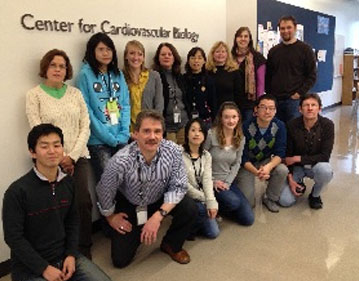
Projects Funded
Myosin Heavy Chain 7 Mutation and Hypertrophic Cardiomyopathy (2012-2013)
Principal Investigator

Charles E. Murray
University of Washington
Project Summary
Cardiomyopathy literally means “heart muscle disease” and manifests in the deterioration of the function of the heart, typically leading to death through heart failure or arrhythmias. We know that most hypertrophic cardiomyopathies (meaning pathologic thickening of the heart wall) are genetically based and most commonly are associated with various mutations in the gene encoding myosin heavy chain 7, a major protein in the contractile machinery of the heart muscle cell. Despite this insight to cause, there have been no significant advancements in the treatment of the disease. In our project we will collect skin cells from pediatric and adult patients with hypertrophic cardiomyopathy. We will then use the breakthrough technology of induced pluripotent stem cells to generate stem cells and then re-differentiate these into patient-specific heart muscle cells. These heart muscle cells will carry the cardiomyopathy mutation and provide the ideal platform to study the disease. We expect to learn why the cells have abnormal contraction and relaxation, why they are prone to irregular rhythms and why they enlarge in response to work. Furthermore, we will perform genetic correction studies by both knocking out the defective gene and by repairing the gene. These will shed light onto the mechanism through which the mutation causes disease. Down the road we will use these cells for high throughput drug screens to develop new treatments for cardiomyopathy.
View All Projects
